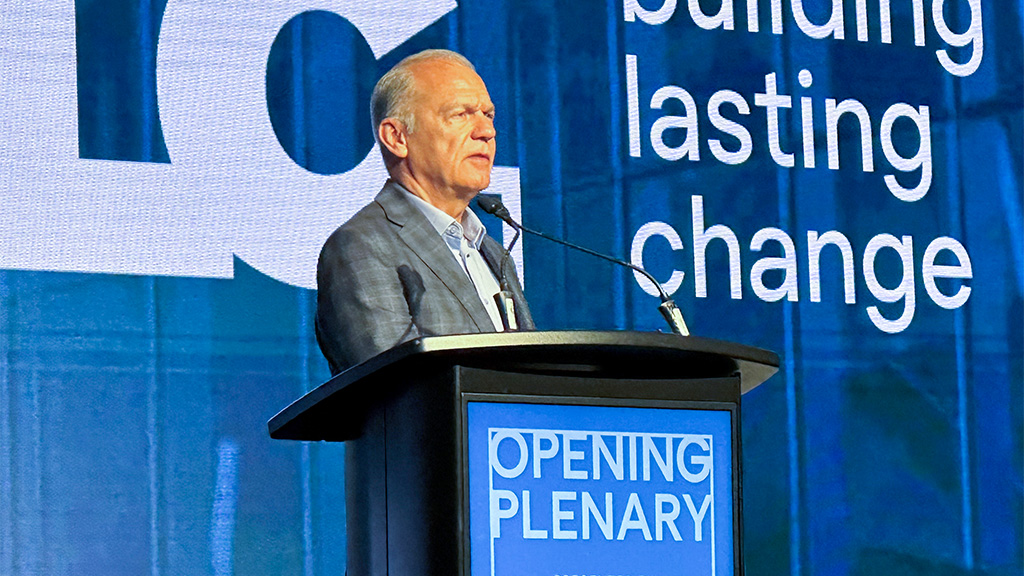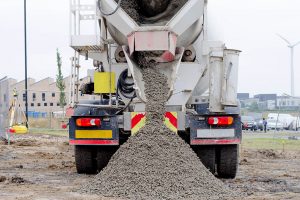Green building is in a transitionary state, but one of its strongest advocates sees much room for optimism in the years ahead.
Canada Green Building Council (CaGBC) president and CEO Thomas Mueller opened the second day of the 2023 Building Lasting Change conference in Vancouver with a largely positive look at the state of green building and decarbonization both in Canada and across the globe.
Mueller said during his opening remarks when the council began 20 years ago the concept of green building was only starting to emerge but has progressed to the point many businesses will not engage in real estate projects unless reduction of energy consumption is addressed.
“Green building and decarbonization are becoming part of business decision-making,” he said.
Mueller praised the Canadian government for spearheading a green building strategy where all new federal buildings are required to be net-zero.
“They have a very innovative and forward-looking program on how to decarbonize their buildings and how they’re going to use their purchasing power to decarbonize, which helps the industry by bringing down the cost of products and technologies and the carbon footprint of products like cement,” he said.
“They’re not only using their own buildings because they need to walk the talk, but they’re also using that to green the supply chain. I think that’s a great role for government to have. They did it with LEED 20 years ago, it was just governments and the private sector was watching and understood government had risked LEED for the industry and it’s the same now with zero-carbon,” Mueller said.
He also pointed to progress south of the border as the Securities Exchange Commission’s move towards requiring disclosure of climate risks and GHG emissions by publicly traded companies.
While there has been substantial progress, there are still areas for improvement, not only for Canada but the rest of the globe.
“Very few countries are meeting the 1.5-degree target. It’s not that they’re not doing anything, it’s just the ramp-up period with changing how we work in real estate, how you do construction what materials are used, and how you design and move,” Mueller said. “We’re in the transition phase where we state what we want to do and where we want to be but it’s going to take us longer to get there.”
This year’s conference was the first in-person event since the COVID-19 pandemic though CaGBC held virtual conferences in the interim.
Mueller said one of the more striking aspects of being back in-person was the number of young people in attendance.
“It’s really interesting that in the audience there’s still some old timers but new people are coming into the conference and our meetings, a lot of young people who see an opportunity with being involved with the CaGBC for their careers,” he said.
“Green building is becoming a business. There’s investments, return on investments and that also extends to our decarbonization plans,” Mueller said.
He added the recent U.S Inflation Reduction Act, which has a strong green building component, will benefit both the green economy in the U.S. and Canada.
“These companies are cross-border companies. If they get money for environmental product declarations, these investments benefit us just as they do companies in the U.S.,” he said. “There’s a fear some (Canadian) companies will leave because there’s so much opportunity, but the Canadian government put measures in place in the last budget to invest in Canadian small and medium sized business technologies and materials that support the low carbon economy.”











Recent Comments
comments for this post are closed